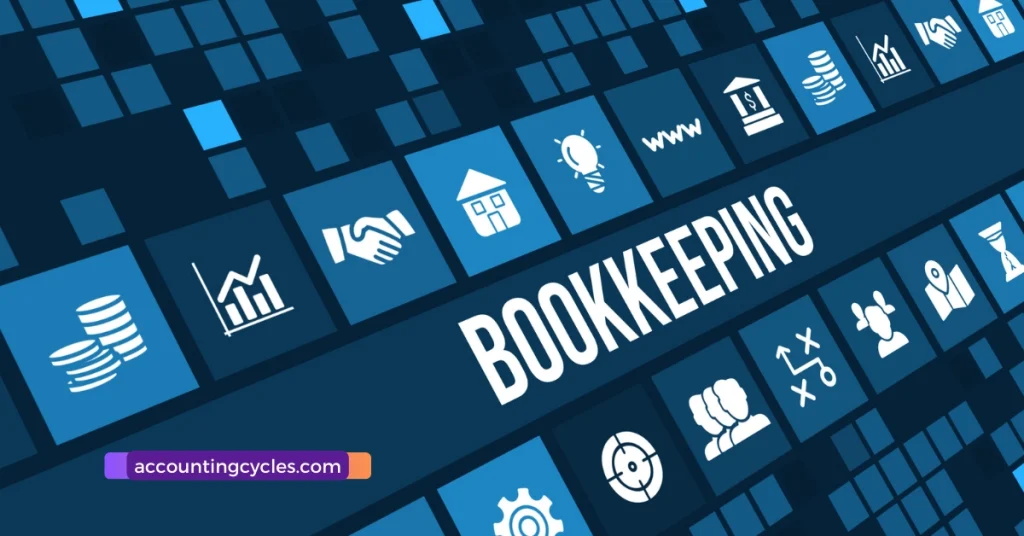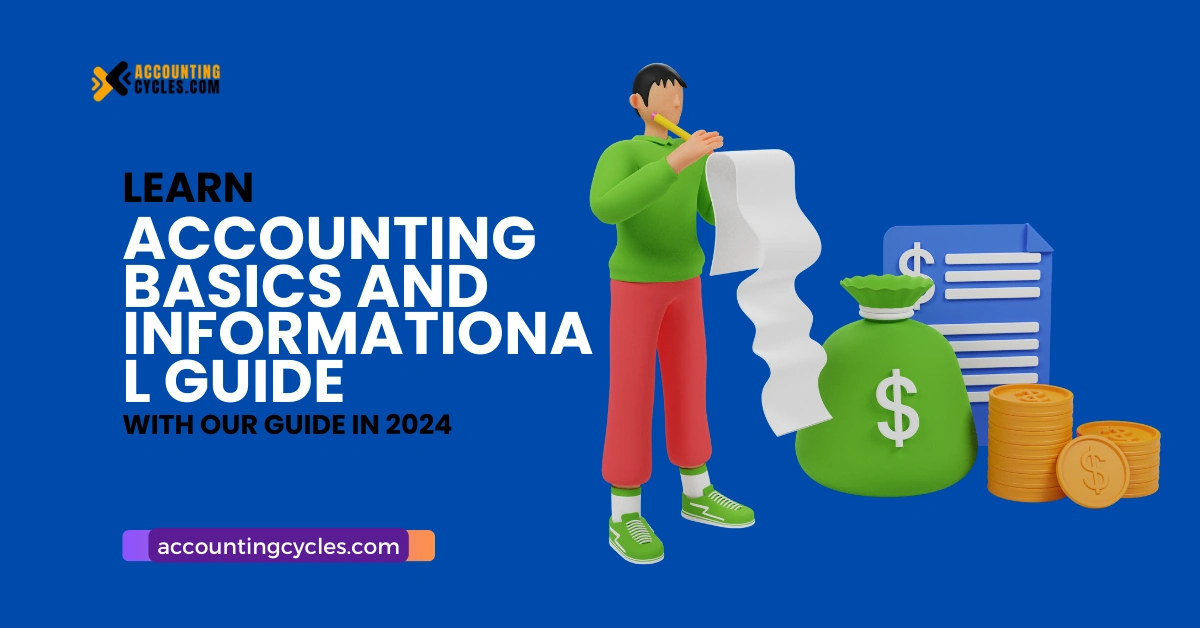The process of classifying, keeping, and organizing a company's financial records is known as bookkeeping. Maintaining an organization's overall financial health entails keeping track of transactions and archiving financial paperwork.
This article describes what is bookkeeping, including an overview of the bookkeeping procedure, the benefits of efficient bookkeeping, and how automated accounting software facilitates the simplification and acceleration of bookkeeping operations for businesses.
The majority of businesses keep their books electronically, using anything from basic spreadsheets to more complex, specialist software. Bookkeepers engage in a variety of bookkeeping tasks. Single-entry and double-entry bookkeeping are the two most used types.
Purpose of Bookkeeping
There are several reasons why bookkeeping is crucial. It first aids in the monitoring of financial performance for businesses. Businesses can plan for their financial future by having a clear understanding of the amount of money coming in and going out. Second, bookkeeping can assist companies in adhering to tax regulations.
Bookkeeping can assist firms in meeting their IRS requirement to maintain accurate financial records. Third, bookkeeping can assist companies in drawing in investors. Investors are more inclined to put money into a company with transparent financial statements.

Maintaining an accurate and comprehensive track of all financial transactions is the main goal of bookkeeping, and it should be done so effectively and efficiently. This ensures that the books of accounts accurately represent all of the financial effects of these transactions.
Finding the overall effect of each recorded transaction on the organization's financial statement is another objective. Put differently, bookkeeping aids in identifying the organization's final accounts, specifically the balance sheet and the profit and loss account.
Functions of Bookkeeping
To understand what is bookkeeping, lets discuss various functions of the bookkeeping that can guide a bookkeeper to understand the concepts of bookkeeping even better, the following are some of the key duties of bookkeeping:
- Recording financial transactions
- Posting debits and credits in the appropriate ledgers
- Creating and organizing source documents, like invoices
- Keeping the books of accounts up to date and maintained
Methods of Bookkeeping
Methods of bookkeeping can help a bookkeeper to better learn about what is bookkeeping as there are two main methods of bookkeeping:
- Single-Entry Bookkeeping
- Double-Entry Bookkeeping
1. Bookkeeping with Single Entry
A more basic approach known as single-entry bookkeeping simply keeps track of the total amount of money that is received and spent every day. Small firms that don't need to keep extremely precise records or don't have many transactions frequently use it. In single-entry bookkeeping, all transactions are recorded in bookkeeping on a single row. Single-entry accounting is generally appropriate for recording money, taxable earnings, and tax-deductible expenses.
2. Bookkeeping with Double Entry
Every financial transaction is recorded twice in bookkeeping—once as a credit and once as a debit—in a system that is more complex. Compared to single-entry bookkeeping, this approach is thought to be more precise and dependable. It is frequently utilized by larger companies and companies that have extensive record-keeping requirements. Accrual accounting is commonly used in double-entry bookkeeping to account for liabilities, equity, property, expenses, and revenue. Double-entry accounting is more systematic and error-free than single-entry bookkeeping, despite the latter's simplicity.
A table outlining the primary distinctions between double-entry and single-entry bookkeeping is drawn below.
| CHARACTERISTICS | SINGLE ENTRY BOOKKEEPING | DOUBLE ENTRY BOOKKEEPING |
| Number of Entries | One entry for each transaction | Two entries for each transaction, one debit and one credit |
| Accuracy | Less Accurate | More Accurate |
| Reliability | Less Reliable | More Reliable |
| Complexity | Simpler | Complex |
| Application | Suitable for small businesses with few transactions | Suitable for larger businesses and businesses that need to keep very detailed records |
Elements of the Bookkeeping Process
There are six different moving parts in the bookkeeping process, along with accompanying financial documentation. A good bookkeeping process depends on ensuring accuracy, timeliness, and consistency in every location where a transaction needs to be documented. Let’s discuss elements of the bookkeeping in detail.

Chart of Accounts:
Every account in the general ledger of the company is listed in a chart of accounts. A financial record called an account keeps track of each asset, obligation, equity, revenue, and expense. To facilitate identification, accounts are grouped according to a coding scheme.
Journal entries:
The purpose of bookkeeping is to provide an accurate, up-to-date picture of the financial health of a company. The specifics of every financial transaction, such as the amount credited or debited to a certain account, are documented in journal entries. Eventually, entries are added to the main ledger of the company.
General Ledger:
A company's financial transactions are numbered and recorded in the general ledger, which is used for tracking and the preparation of three primary financial statements listed below:
A debit to one general ledger account under the double-entry bookkeeping system needs to be balanced by an equal and opposite credit in another account.
Statement of cash flow:
A cash flow statement tracks the amount of money (and money equivalents) coming into and going out of a company during a specific time frame. Statements of cash flow assist businesses in evaluating their liquidity.
Statement of income:
An income statement provides information on a company's earnings, gains, losses, and expenses for a certain accounting period. Some businesses call their income statement a profit and loss statement, or P&L for short, or an earnings statement.
Balance Sheet:
The balance sheet of a business gives a complete view of its financial situation at any one time. Every asset, liabilities, and equity is tracked.
Advantages of Bookkeeping
In addition to being essential for maintaining fundamental financial operations, bookkeeping also helps to lighten the workloads of accountants. There are various advantages of bookkeeping that can bookkeeping an essential part of business success. Following are major advantages of bookkeeping.
Detailed Records:
Reporting is eventually accelerated by the ease of monitoring and controlling company accounts thanks to comprehensive, centralized financial data. Comprehensive records make financial or tax audits easier as well because pertinent data can be found more easily and for less money.
Improved Compliance:
Professional bookkeepers ensure that their work conforms to the most recent legal and accounting standards relevant to their company and sector, helping them avoid fines or penalties for noncompliance. This implies that all ledgers, financial statements, and accounts comply with the most recent tax laws, SEC rules, and industry-specific accounting standards.
Better Planning:
Better accounting and business decisions based on a comprehensive understanding of the company's performance are made possible by solid bookkeeping data. Finance teams can feel secure in the information they use for reporting and long-term planning if they have a thorough record of their company's financial statements.
Transparent Reporting:
Bookkeepers maintain a current general ledger for their company at all times. Whether they are preparing financial reports for a monthly close or on-demand information requests, accountants can provide that data to corporate stakeholders.
Faster analyses:
Having accurate and current records speeds up the work of accountants, whether they are preparing financial statements or developing a project budget.
Limitations of Bookkeeping
There are difficulties with bookkeeping, just like with any other financial procedure. This is particularly valid for small enterprises with limited resources. The three most typical difficulties with bookkeeping are listed below.
Making time:
Due to the lack of specialized bookkeepers on staff in small businesses, bookkeeping duties must be completed by owners or other staff members when they take time away from other essential business operations. As an alternative, they can delegate bookkeeping responsibilities to a third-party expert or utilize accounting software. Most of the time, bookkeeping experts are also less expensive than accountants.
Using records passively:
For many firms, bookkeeping is just another checkbox activity that helps them stay in compliance and complete appropriate tax returns. But that just tells part of the tale. Current financial records give important stakeholders a greater picture of the financial health of their company, enabling them to make well-informed business decisions.
Being Mired in Manual Procedures:
Accurate bookkeeping is hampered by manual operations in a developing business. Companies can only rely so much on spreadsheets and paper records when dealing with an ever-growing number of transactions to document. Software-based bookkeeping reduces the possibility of human error while saving a significant amount of time and effort.
Conclusion: What is Bookkeeping
The crux of what is bookkeeping is the crucial accounting procedure known as bookkeeping is responsible for the meticulous documentation, arrangement, and monitoring of a business's daily financial dealings.
To provide corporate executives and their stakeholders assurance regarding their financial records, it is a labor- and time-intensive process that requires exacting precision—100% of the time. A bookkeeper documents each financial transaction.
Bookkeeping is the daily upkeep of a company's books and records. Bookkeepers are transaction historians, as opposed to accountants, who examine their company's financial data from the highest perspective. They create, maintain, classify, arrange, preserve, and guarantee the accuracy of a company's financial records.
Maintaining a company's accounts takes less time and is simpler with automated accounting software. The decision lies with the senior management about which option to choose. However, if a large volume of transactions has to be recorded using relevant software has advantages.
Frequently Asked Questions
1. What is the difference between accounting and bookkeeping?
In other words, bookkeeping is primarily transactional and administrative in nature, focusing on the documentation of financial transactions. Accounting is more individualized; it provides you with information about the financial health of your company through accounting. While they sometimes do the same tasks, bookkeepers and accountants have distinct skill sets. Generally speaking, a bookkeeper's job is to keep your finances organized and track transactions, whereas accountants offer analysis, and counsel, and are better equipped to offer tax advice.
2. What is single-entry bookkeeping? Explain with an example.
In a single-entry bookkeeping system, the business's transactions impact just one account, meaning that the value of that one account changes in response to the number of transactions. A cash book that details the payments and receipts for the cash transactions is created under this method.
3. What is double-entry bookkeeping? Explain with an example.
Every financial transaction is recorded twice in bookkeeping—once as a credit and once as a debit—in a system that is more complex If a company borrowed $10,000 and the debt was recorded in both the credit and debit accounts, that would be an example of double-entry accounting. A $10,000 debit would be made from the cash (asset) account and a $10,000 credit would be made from the debt (liability) account.
4. What are the rules of a bookkeeper?
The rules that a bookkeeper must follow are as follows:
- 1. Do not mix personal and business finances.
- 2. Take note of every single payment.
- 3. Make sure you’re aware of rules and regulations and seek expert advice.
- 4. Backup your records.
- 5. Make use of technology.
5. Is bookkeeping a hard skill?
Even though bookkeeping involves a lot of math—regular cash monitoring, bill payment, and revenue tracking, for example—anyone with good math skills can do it provided they understand the fundamentals of bookkeeping.
Recent Post
- Top 10 Practical Tips for Bookkeeping for Efficient Accounting
- Why Outsource Bookkeeping: Boost Efficiency & Cut Costs Today!
- What is an Accountant: Roles, Services, and Expertise | Learn More
- What is Accounting Cycle: A Comprehensive Guide | Learn More Now
- What Is Universal Basic Asset; Uses and Benefits





